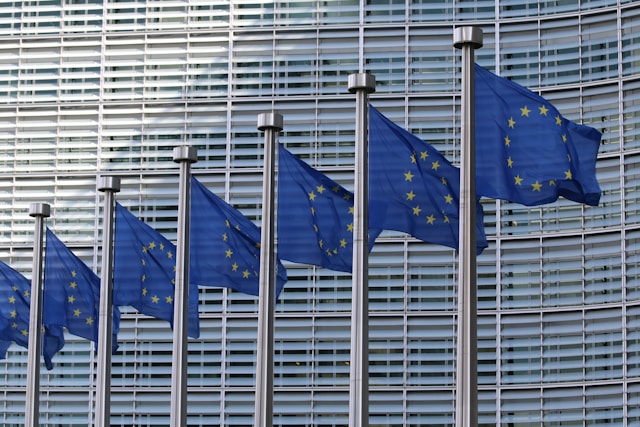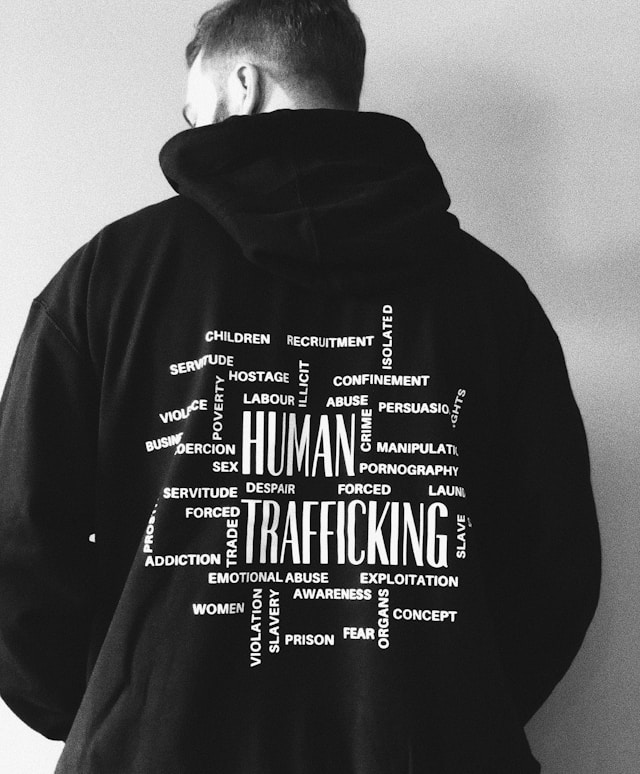Human trafficking is a serious violation of human rights. This is primarily understood to mean the recruitment, transportation, transfer, harbouring, or receipt of women, men and children for the purpose of exploitation. Although this assumption is still widespread, human trafficking does not only affect the poorest countries. The illegal trade of human beings exists all over the world, including in the European Union. However, stricter laws to combat human trafficking are to be introduced in the EU in the future.

THE SITUATION UNTIL NOW
According to the UN Human Trafficking Protocol of 2000 (Palermo Protocol, Art. 3), the term human trafficking refers to “the recruitment, transportation, transfer, harbouring or receipt of persons, by means of the threat or use of force or other forms of coercion (…) for the purpose of exploitation”. Girls and boys under the age of 18 are considered victims of human trafficking even if none of the aforementioned means of coercion were used against them. According to Section 104a of the Austrian Criminal Code (StGB) , exploitation includes sexual exploitation, exploitation through the removal of organs, labor exploitation, exploitation for begging, and exploitation for the commission of punishable acts.
Although much progress has been made in the fight against human trafficking in recent years, it remains a serious threat in the European Union. Between 2017 and 2018 alone, for example, the EU Member States reported 14,145 victims. The majority (72%) of those affected were women and girls, although the proportion of male victims is also increasing. They are mainly trafficked for sexual and labor exploitation. Almost half of those affected came from an EU country. However, the number of unreported cases is likely to be much higher, as a large proportion of the crimes go unreported, and many victims therefore go unrecorded.
Despite the still high number of victims, the European Union remains a key player in the fight against human trafficking. On April 5, 2011, the European Parliament and the Council adopted Directive 2011/36/EU on preventing and combating human trafficking and protecting its victims. Here are some of the most important points of the directive:
- Definition of human trafficking: The Directive defines human trafficking comprehensively to ensure that different forms of this offense are covered. This includes exploitation through sex trafficking, forced labor, slavery or similar practices.
- Penalties and sanctions: Member States are encouraged to establish adequate and effective penalties for traffickers in order to ensure deterrence. Penalties should be severe and dissuasive in order to hold perpetrators accountable.
- Victim protection: The Directive sets out measures to protect the rights and needs of victims. This includes protection measures, support services, access to medical care, legal support and safe accommodation.
- Non-punishment and victim protection: Victims of human trafficking should not be punished for illegal activities related to their situation. Member States are encouraged to ensure that victims receive adequate protection and support, regardless of whether they cooperate with law enforcement authorities.
- Prevention and cooperation: The Directive emphasizes the importance of measures to prevent human trafficking and cooperation between Member States. This includes the exchange of information, training for professionals and awareness-raising campaigns.
The member states were required to transpose this directive into national law by April 6, 2013. Now, a decade later, the European Union wants to further intensify the fight against human trafficking. The 2011 directive is therefore to be updated and comprehensively supplemented.
NEW RULES – WHAT CHANGES ARE BEING MADE?

In recent years, the forms of exploitation have continued to evolve. Globalization and technological progress have not only networked the economy and politics, but also crime, which means that the business of human trafficking is still on the rise. Against this backdrop, the Commission has decided to revise and update the 2011 EU Directive on combating human trafficking. The political agreement is primarily aimed at tightening regulationsin the following areas:
- Surrogacy, forced marriage and illegal adoption are to be explicitly included in the definition of human trafficking in the future. This obliges Member States to punish such acts in their national criminal law as forms of exploitation related to human trafficking.
- Human trafficking committed or facilitated through information and communication technologies, including the internet and social media, will be added as a criminal offense. The dissemination of images or video footage of victims will also be given greater consideration in the legislation.
- Formal referral mechanisms will be made mandatory in all Member States. This will improve the early identification of victims and the provision of support and assistance.
- People who knowingly use the services of trafficking victims can be punished. This is an important measure to reduce demand. This can involve both sexual acts and traditional labor services.
- Binding national action plans for Member States and an improved administrative structure with national anti-trafficking coordinators will be introduced, as well as the possibility of appointing independent bodies. Both changes represent an innovation compared to the previous legislation and lead to harmonization at the EU level.
- There will be a mandatory EU-wide annual data collection on human trafficking based on agreed indicators, which will be published by Eurostat. Under the previous legal framework, this was not mandatory and only took place every two years.
In addition, the proposed penalties provide for crimes to be punished with a minimum prison sentence of five years in future. A minimum prison sentence of ten years is even being considered for particularly serious offenses.
The directive must now be formally adopted by the European Parliament and the Council. It will enter into force 20 days after its publication in the Official Journal of the European Union. Member states must then transpose it into national law within two years.
Translated by Emily Schiffer
#HumanTrafficking #HumanTraffickers #EUDirective #EUStrategy #AgainstHumanTrafficking #GegenMenschenHandel #EndExploitation #EndTrafficking #HopeForTheFuture #Austria
